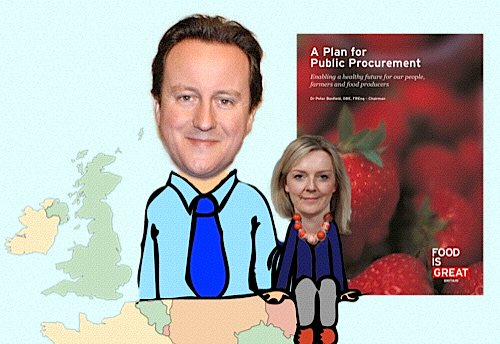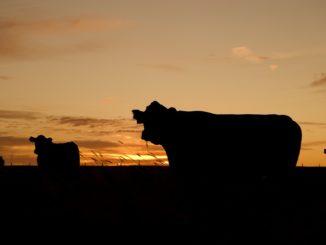 UK prime minister David Cameron needs to come clean about his real position on local food procurement in the UK. In his foreword to Dr Peter Bonfield’s report A Plan for Public Procurement, the prime minister is keen to be seen as an ardent advocate of local food. Cameron wrote: “England’s public sector spends £1.2 billion every year on food and drink. I want to ensure that money is spent on nutritious and sustainable food, delivered by Britain’s thriving rural economy.”
UK prime minister David Cameron needs to come clean about his real position on local food procurement in the UK. In his foreword to Dr Peter Bonfield’s report A Plan for Public Procurement, the prime minister is keen to be seen as an ardent advocate of local food. Cameron wrote: “England’s public sector spends £1.2 billion every year on food and drink. I want to ensure that money is spent on nutritious and sustainable food, delivered by Britain’s thriving rural economy.”
And yet, the TTIP international trade agenda is to kick down local food procurement schemes. In June, ARC2020 reported the Center For Food Safety publication Trade Matters. The current public procurement negotiation position threatens to kick local agreements into touch in favour of corporate interests and mass-produced food products. Maybe Cameron is out of touch with the working texts of his TTIP negotiating team? Maybe he wants to have his local cake and eat it.
More to the point, of the two government ministers announcing this policy initiative, Cameron has had more regular access to the international trade agenda than his recently-appointed environment minister. Liz Truss deserves credit for meaning it when she writes, in relation to Public Procurement: “There is a huge potential economic benefit to farmers and food producers. Food and farming is already Britain’s largest manufacturing sector, with three million people working in it. This deal will mean a further £400 million of business available for this important industry.” She could be sure of massive public support if she were to challenge the TTIP public procurement position on this basis.
In a parliamentary written statement, she told MPs that: “By using a simplified and more consistent approach. Government procurement can open up the public sector market to small and local businesses, which means more competition and good value for the taxpayer. It will allow more locally-sourced food to be served in our public sector organisations, which means more money into the local economy. It is also good for the environment, as the approach supports UK farm production standards and measures to reduce food waste. It will encourage healthier eating, foster a great connection with food, and celebrate local food.”
However, less than a week into her new ministerial job, Truss has already been set up by her prime minister to promote something which will be undeliverable if the TTIP international trade agenda continues to be pursued slavishly and secretly. Through no fault of her own, the minister could be presiding over a monumental UK government own goal.
More on TTIP
Arc2020 all News on TTIP
Arc2020 briefing notes on TTIP
More from Peter Crosskey
- UK agroecology centre taps into water research
- UK government to accept industry’s neonics research
- UK pesticide approvals: business, as usual
- Leave it to Tesco: how the UK ignores food security
- UK cabinet reshuffle kicks Paterson into touch
- Syngenta shelves attempt to overturn UK pesticide ban
- Bumblebees dying for a change in US pesticide laws
- NGOs’ dismay with CAP greening in Britain & Ireland





